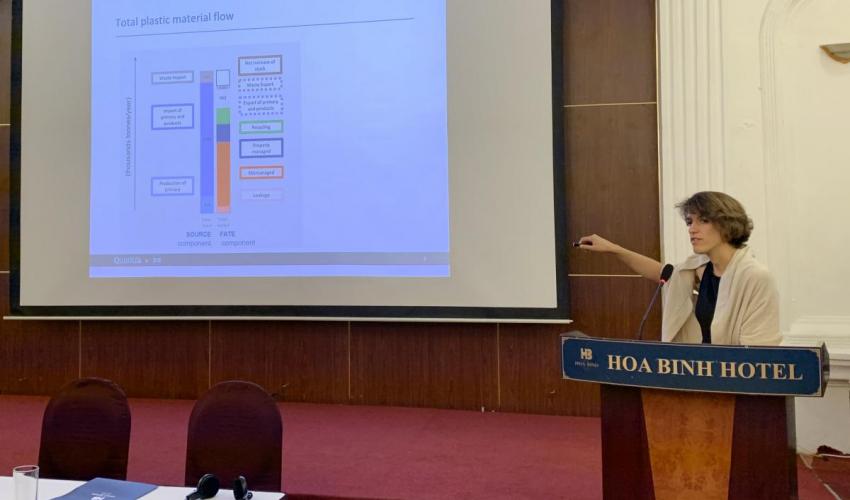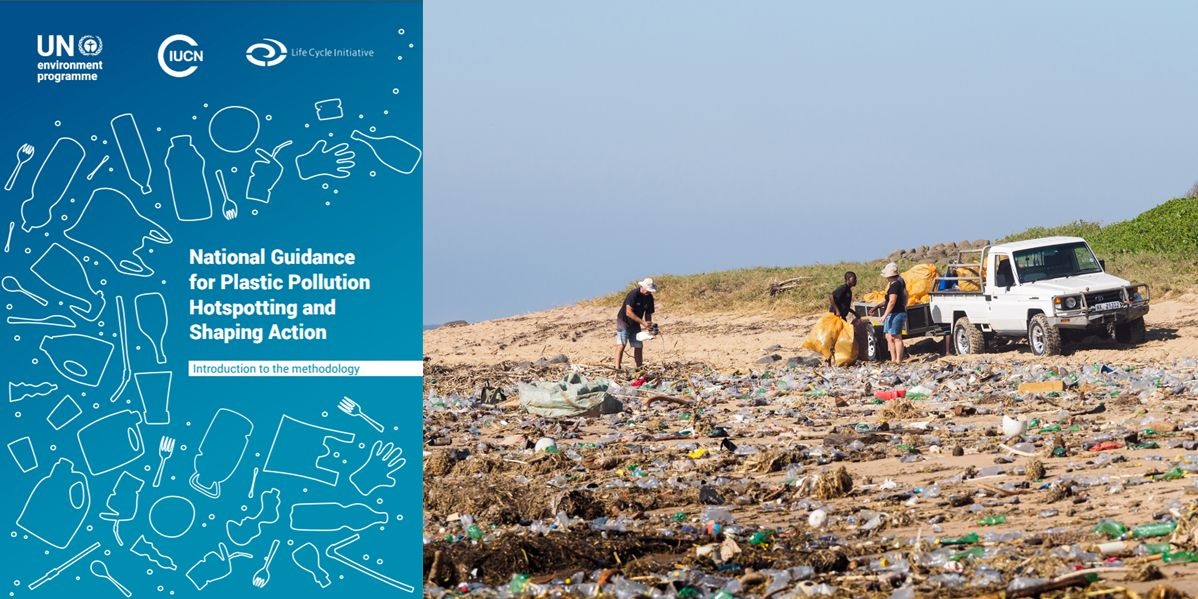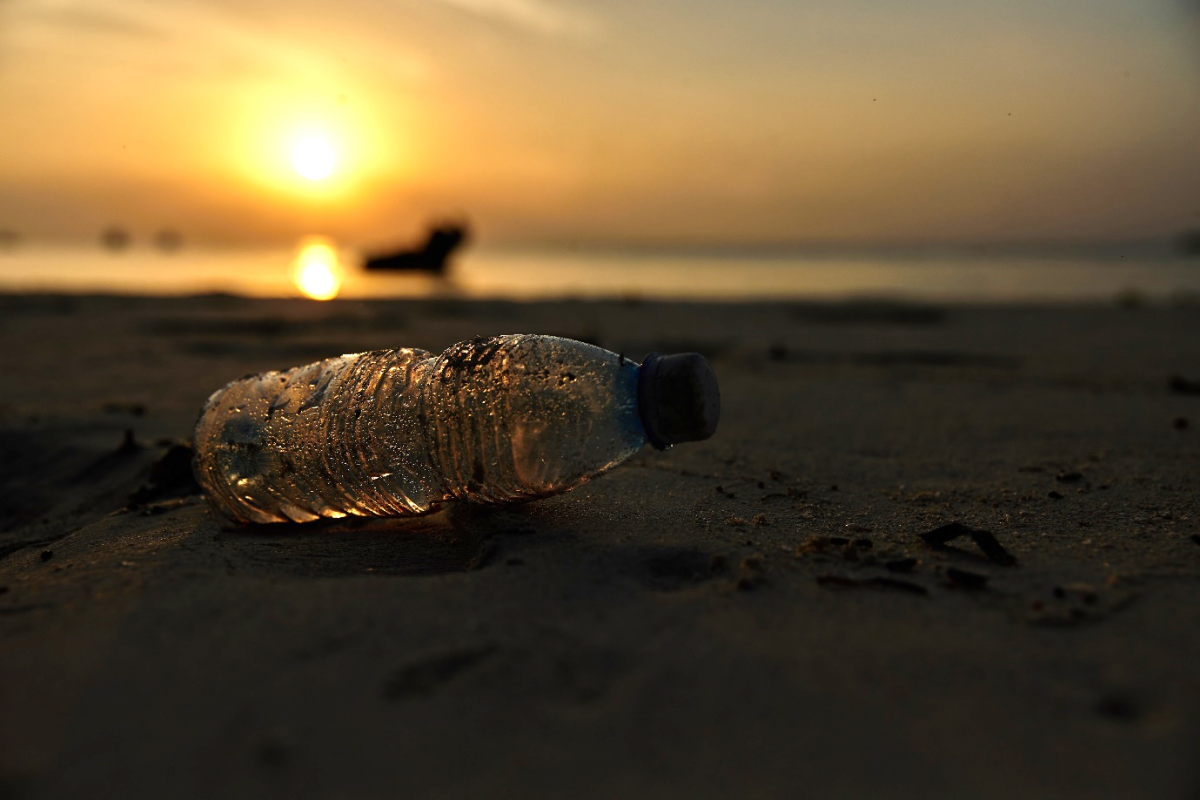Stakeholders Meeting to Review, Negotiate and Finalise the Bilateral Agreement for the Angololo Water Resources Development Project
Nairobi, Kenya: In April 2024, senior government officials from the Ministries and Agencies responsible for Water, Energy, Agriculture, Legal Affairs and Finance from Kenya and Uganda, in addition to staff from NELSAP-CU and IUCN met to action the next steps in the Sio-Malaba-Malakisi (SMM) process. The process has been running since 2016 with the support of the IUCN BRIDGE - Building River Dialogue and Governance Programme.
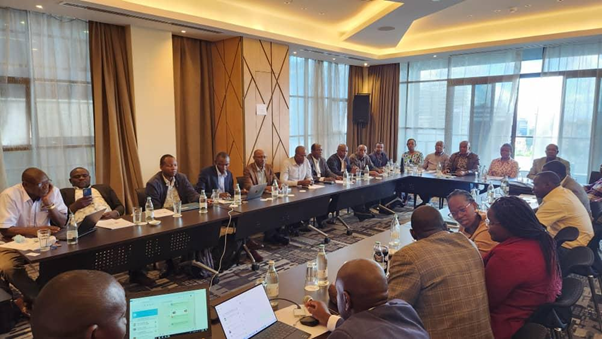
BRIDGE focuses on water diplomacy, implementing activities in over 20 transboundary river and lake basins globally since 2012, thanks to the support by the Swiss Development and Cooperation Agency (SDC). Currently in its fifth phase, BRIDGE aims to create effective mechanisms and institutions for sustainable management of transboundary water resources and contributing to long-term security and blue peace.
BRIDGE has been active in the SMM since 2016, building on the previous work in the basin by the Nile Equatorial Lakes Subsidiary Action Programme (NELSAP). The Angololo Multi-Purpose Project was one of the four projects that were identified and prioritised through a stakeholder consultation and benefit sharing process (2016 – 2022), which also developed a basin investment plan and financial sustainability strategy.
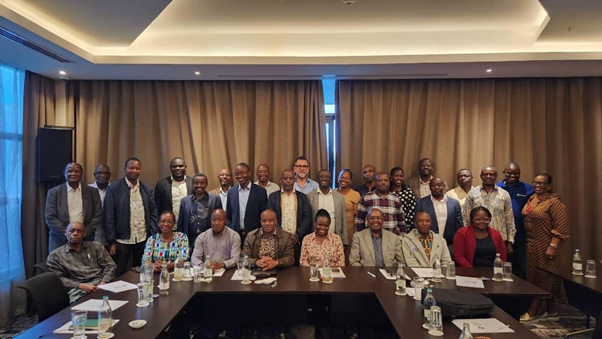 Photo: IUCN / ESARO
Photo: IUCN / ESARO
The negotiation meetings for the Angololo Bilateral Agreement were held at the respective national levels with a final harmonised draft being agreed upon during the regional meeting that took place on April 3rd-5th 2024 in Nairobi Kenya supported by IUCN, NELSAP-Coordination Unit and the New Partnership for Africa's Development (AUDA-NEPAD). The bilateral agreement creates a framework for the implementation of the Angololo Multi-Purpose Project on the SMM transboundary basin shared between Kenya and Uganda. The project has four main components: water for domestic supply; water for irrigation; Hydro Electric Power production; and catchment management. These activities will be implemented jointly at regional and national levels with grants and loans from various development partners including Africa Development Bank.
Dr Alejandro Iza, Director, IUCN Environmental Law Centre, Bonn, noted that as IUCN, we are happy to see that the two SMM riparian countries are discussing and finalising a Bilateral Agreement that would provide a framework for the management of the Angololo project.
Mr. John Owino, Senior Programme Officer, IUCN ESARO, noted that the basis for the IUCN’s involvement in the transboundary water governance are twofold: firstly, to promote the realisation of the fundamental principles on transboundary water governance and development as spelt out in the two global water frameworks – the 1997 United Nations Watercourses Convention, and 1992 Helsinki Convention. These fundamental principles emphasize equity, sustainability, and Do No Harm when utilising the shared or transboundary water; and secondly, the realisation of the SDGs Target 6.5: By 2030, countries embrace IWRM at all levels, including through transboundary cooperation as appropriate. Indicator 6.5.1 measures advancement of IWRM and Indicator 6.5.2: measure the proportion of transboundary basin area with an operational arrangement for water cooperation.
Facilitated by IUCN; the meeting revised the implementation roadmap for the Angololo project with timeline, key milestones and deliverables to guide the subsequent phases of the project agreed.
Finally, the meeting agreed on the next steps, as follows:
- circulation of the finalized draft Bilateral Agreement for formal approval by respective authorities and subsequent signing,
- initiation of necessary administrative procedures necessary for the implementation of the Angololo Project, and
- regular monitoring of the progress for the implementation of the activities in the roadmap and ensuring delivery of key milestones as per the timeline.
For more information on BRIDGE please visit our website: BRIDGE | IUCN Water (waterandnature.org)
Or contact:
John Owino – Senior Programme Officer (East and Southern Africa – Kenya Regional Office) john.owino@iucn.org
Or
Maria Lindelien – Water Governance Officer and BRIDGE Programme Coordinator (IUCN Global HQ – Switzerland)
Maria.lindelien@iucn.org